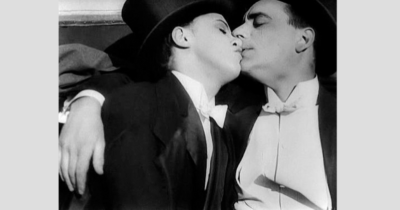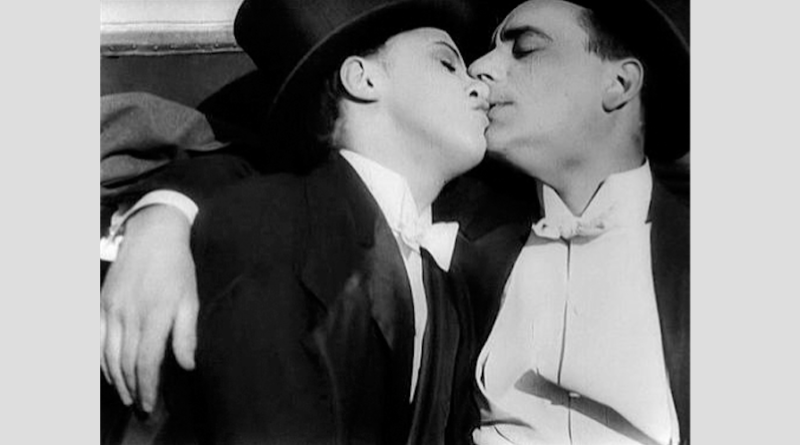REVIEW: ‘I Don’t Want to Be a Man’ is 100-year-old exploration of gender roles

This month, director Ernst Lubitsch’s work is being remembered at New York City’s Film Forum, and one of his earliest movies is perhaps his most surprising of all.
I Don’t Want to Be a Man is a short 1918 silent film starring Ossi Oswalda, a frequent Lubitsch collaborator, as a woman who decides to enjoy one night on the town dressed as a man. What results is an interesting exploration of gender roles and sexuality in the early part of the 20th century. Because of its subject matter, and the journey that the main character takes, Lubitsch’s film feels ahead of its time and somewhat revelatory for its frankness.
The movie is largely carried by Oswalda’s performance. In the beginning part of the film, she is amusing and energetic amongst her family members, and yet she displays an obvious boredom and restriction. Later on, after dressing as a man, she becomes dedicated to her disguise and her experiment. As she encounters the world as another person, certain revelations are brought to bear, and her eyes are opened to not only life as a man, but life as a privileged man. In turn, she also learns some lessons about the difference social norms attached to women and men.
The movie feels quite shocking for dealing with gender and sexuality in such a frank and creative way, especially for a film from 1918. Although any fan of literature knows that cross-dressing main characters are quite common, and the storyline can be seen as a sub-genre.
Why does she dress as a man? What is learned along the way? Ossi (that’s the character’s name as well as the actresses’) is bored and upset with her life as a woman, and her decision to disguise herself as a man is a note of independence at a time when the sexes were anything but equal. She makes the decision freely and without reservation, and that speaks to her role before the disguise.
As far as motivation, her entry into high society as a man perhaps was intended to prove a point about how easy men have it over women; however, Ossi finds that both lives — as a man and as a woman — are wrought with difficulty, and her dissatisfaction perhaps has to do with class more than gender. She doesn’t fit the model of what the wealthy elite expect of a young woman … or a young man. Thus, the audience is left with the impression that Ossi’s boredom will persist.
There’s also a back-and-forth between Ossi and her guardian, whom she meets at a party. Ossi is in disguise as a man, and her male guardian (Kurt Götz) takes a liking to Ossi and enjoys his company. They become fellow drinkers and commiserators, and even share a kiss. The attraction of the two is especially important because of the changed gender roles and the swapping of expectation.
Lubitsch’s film is an interesting, ahead-of-its-time exploration of how gender roles, sexuality and class all meet in the form of one experiment by a young woman trying to shake up social conventions. This may be an early silent film, and it may only run 45 minutes, but it packs a sociological wallop.
By John Soltes / Publisher / John@HollywoodSoapbox.com
I Don’t Want to Be a Man (1918), directed by Ernst Lubitsch and written by Hans Kräly and Lubitsch, stars Ossi Oswalda and Kurt Götz. Running time: 45 minutes. Rating: 




